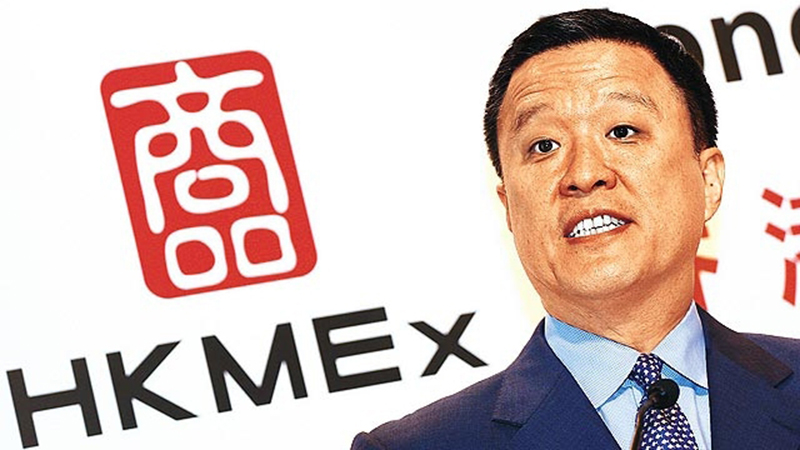Former Executive Council member Barry Cheung will face fraud and conspiracy to defraud charges.
Cheung was the former chairman of the now-defunct Hong Kong Mercantile Exchange. The exchange returned its licence on May 18, 2015, after failing to balance its books. However, Cheung – at the time – denied he was in debt.
He was arrested by the Police Commercial Crime Bureau on Thursday morning. Jacky Choi, former chief financial officer of the exchange, was also arrested for conspiracy to defraud.

His case was heard at the Eastern Magistrates’ Courts on Thursday afternoon. Cheung was released on HK$50,000 bail. The case will be transferred to the District Court on August 24.
The conspiracy charges allege that Cheung and Choi colluded to defraud the Securities and Futures Commission by dishonestly concealing, or failing to disclose, the financial position of the exchange. It caused misleading information to be supplied, and led to the exchange’s reports to the Commission to include false or misleading data.
The charges allege that such conduct caused the Commission to not withdraw its authorisation allowing the exchange to provide automated trading services in Hong Kong.
The other fraud charge against Cheung alleges that he unlawfully gained HK$30 million from Sinomax Securities by making a false claim that New Effort Holdings shares – the company behind the exchange – had not been mortgaged.

Cheung was appointed as a member of the Executive Council, a top advisory body to the government, by former chief executive Leung Chun-ying on July 1, 2012. Cheung was an adviser to Leung during his election campaign earlier that year.
He resigned from all his public positions on May 24, 2013, after he was invited by the police for investigation over the Hong Kong Mercantile Exchange.
Leung accepted his resignation from positions including the Executive Council, the Urban Renewal Authority, the Standing Committee on Disciplined Services Salaries and Conditions of Service, the Commission on Strategic Development and Long Term Housing Strategy Steering Committee, on the grounds that Cheung was under police investigation.
“Mr Leung reiterated that law enforcement authorities including the Police and the Securities and Futures Commission would act impartially and continue the investigations of the Hong Kong Mercantile Exchange and Mr Cheung in accordance with the law,” a statement from the chief executive office read at the time.

Bogus bank documents
Following the closure of the Hong Kong Mercantile Exchange, police raided its office over the suspected use of false instruments. On May 21, 2013, three mainland men were arrested and 32 bogus documents involving more than HK$90 billion were found.
A Malaysian man was arrested in August that year for possessing a false instrument – a fake bank deposit record suggested he possessed HK$4 billion.
The man admitted to the charge in October 2013. He said Cheung had tried to borrow money from him and requested a copy of the record. The magistrate for the case said during sentencing that he did not understand why Cheung was interested in the deposit record, but it was without doubt that Cheung – at one point of time – was in possession of it. The magistrate speculated that Cheung may be a suspect in the case, saying that the police should investigate. Cheung had told Bloomberg that he did not know the record was fake.
The three defendants arrested in May 2013 were jailed the following year, receiving sentences of between 30 months and three years.
Cheung was declared bankrupt by a court in April 2015 after amassing debts of HK$120 million.
Also in that month, he was sentenced to six weeks in jail for failing to pay around HK$340,000 in wages to an employee of the Hong Kong Mercantile Exchange.
In an appeal in September that year, the High Court ruled he should complete 160 hours of community service instead.
